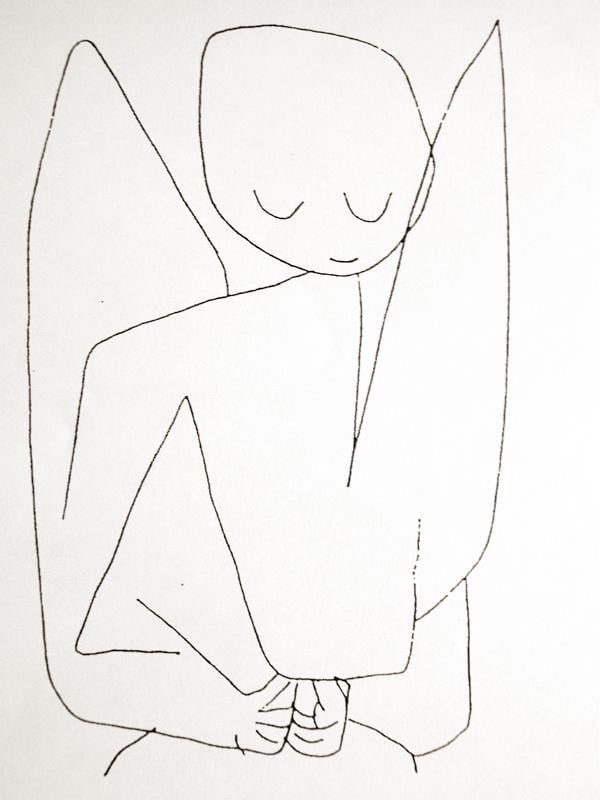The lassitude of angels
is one thing
but how the gold got under
their skin I don’t knowI met them
in the Fields of Mourning
where is
no morningonly the end of night
the dull gold of
transforming suffering:what is passed—
as milk is pain—
passed on to those
we love, becoming
nourishment, good luck
for themSome colors
imply an ease
with indirect experience:
in the Fields of Mourning
the point of each hour
is the dream it inspiresand there
the angels hang out
limp and gold
but suddenly anxious
if toldwhat trembling joy
their suffering has brought.
Fanny Howe (October 15, 1940 – July 9, 2025), “The Angels”
No intellect is needed to see those figures who wait beyond the void of death – every child is aware of them, blazing with glories dark or bright, wrapped in authority older than the universe. They are the stuff of our earliest dreams, as of our dying visions. Rightly we feel our lives guided by them, and rightly too we feel how little we matter to them, the builders of the unimaginable, the fighters of wars beyond the totality of existence. The difficulty lies in learning that we ourselves encompass forces equally great. We say, “I will,” and “I will not,” and imagine ourselves (though we obey the orders of some prosaic person every day) our own masters, when the truth is that our masters are sleeping. One wakes within us and we are ridden like beasts, though the rider is but some hitherto unguessed part of ourselves.
Gene Wolfe, The Book of the New Sun
I have need of angels. Enough hell has swallowed me for too many years. But finally understand this – I have burned up one hundred thousand human lives already, from the strength of my pain.
Antonin Artaud
He happened then to be watching her face just as she said not “would” but “will”, and noted the innocent expression of faith – there was no other word for it, was there? – eyes for the rare moment as unnarrowed as they would ever be, lips vulnerably apart, the saint-in-a-painting look he usually saw only while she was being seen to by Reef. The Zeta function might be inaccessible to her now as a former lover. He would never understand the blessed thing, yet it had had the extraordinary capacity to claim her mind, her energies, a good part of her life. She saw him looking, and her eyes tightened again. But the deed had been done on his heart, and for the hour he did not see how he could ever live without her.
Thomas Pynchon, Gravity’s Rainbow
The death of God left the angels in a strange position.
Donald Barthelme, “On Angels“
And finally who could forget Thomas Ligotti’s “Mrs. Rinaldi’s Angel,” here lovingly dissected by the crew at Weird Studies:
Image: Paul Klee’s “Forgetful Angel“ (1939)




Leave a Reply